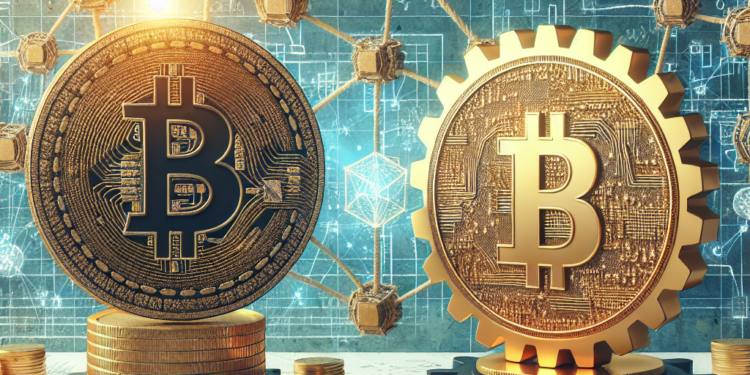Introduction to Decentralized Finance
Ever heard of decentralized finance? It’s commonly referred to as DeFi, and it’s currently shaking up the financial technology (fintech) industry in some pretty radical ways. But what exactly is decentralized finance? Don’t sweat it if you’re not sure, we’re here to break it down for you in a fun and accessible way!
Decentralized Finance: Big Game, Big Changes
Firstly, let’s quickly explain “decentralized”. This simply means decision-making is separated out across many different actors or nodes, rather than being concentrated in a central authority. It’s a fundamental concept of blockchain technology, laying the groundwork for the invention of cryptocurrencies like Bitcoin.
DeFi leverages this decentralization with smart contracts on a blockchain, scrambling traditional financial instruments, baking them into protocols, and serving them up hot and fresh in ways we’ve never seen before.
In the traditional world of finance, the big players are banks, brokers, and insurance companies. They act as intermediaries, facilitating transactions between parties. With DeFi, those intermediaries are replaced with smart contracts on a blockchain. This allows you to do things like lending, borrowing, earning interest, and even investing in a completely decentralized manner.
The Advantages of DeFi
So why is this so revolutionary? Well, DeFi offers a bucket load of benefits that are simply non-existent in the traditional world. To begin with, it’s open to everyone. Yes, everyone. Regardless of your wealth, location, or social status. The only thing you need is an internet connection. This opens up opportunities for billions of people around the world who are unbanked or underbanked.
Next up, DeFi is open 24/7. Unlike traditional banks that keep working hours, DeFi never sleeps. You can make a loan, start earning interest, or even execute a trade at any time of the day or night.
Plus, the level of control and transparency offered by DeFi is genuinely ground-breaking. With DeFi, you hold the keys to your financial future. Every transaction, every contract, and every detail is viewable on the blockchain for anyone to see. There’s no room for hidden fees or shady backroom deals.
DeFi’s Impact on the Fintech Industry
DeFi is significantly changing the Fintech industry. By decentralizing and disrupting traditional financial services, fintech companies are being forced to adapt and jump on the DeFi bandwagon to meet the evolving needs of modern consumers.
However, this doesn’t mean DeFi is without its challenges. There are risks and vulnerabilities, especially as this is such a new and rapidly evolving area. Nonetheless, as technologies and frameworks improve, the potential of DeFi to fully democratize finance becomes harder to deny.
Conclusion
Decentralized Finance is more than just a buzzword; it’s a game changer in the Fintech industry. By replacing intermediaries with smart contracts, it offers degrees of financial access, control, and transparency simply unimaginable in the traditional system. As the world becomes ever more digital, our financial systems must evolve too. DeFi represents a major step in that evolution, embodying the truly disruptive potential of blockchain technology.
Want to keep up-to-date with all the latest DeFi news and trends? Check out DeFi Daily News for top-quality articles and insights.
FAQs
1. What is decentralized finance?
Decentralized Finance, or DeFi, is an innovation that uses blockchain technology to decentralize traditional financial services, replacing intermediaries with smart contracts.
2. How does DeFi work?
DeFi works by leveraging blockchain technology and smart contracts. These contracts facilitate transactions between parties, allowing everyone to interact directly and transparently.
3. What are the advantages of DeFi?
DeFi offers several advantages including accessibility to all, operational 24/7, high control and transparency levels, and the absence of intermediaries.
4. What impact does DeFi have on the Fintech industry?
DeFi is disrupting the Fintech industry by decentralizing traditional financial services. This forces Fintech companies to adapt and incorporate DeFi solutions.
5. Are there any risks associated with DeFi?
Yes, DeFi comes with its challenges and risks, primarily due to its nascent and rapidly evolving nature. These risks include smart contract vulnerabilities, extreme price volatility, and regulatory uncertainties.



















